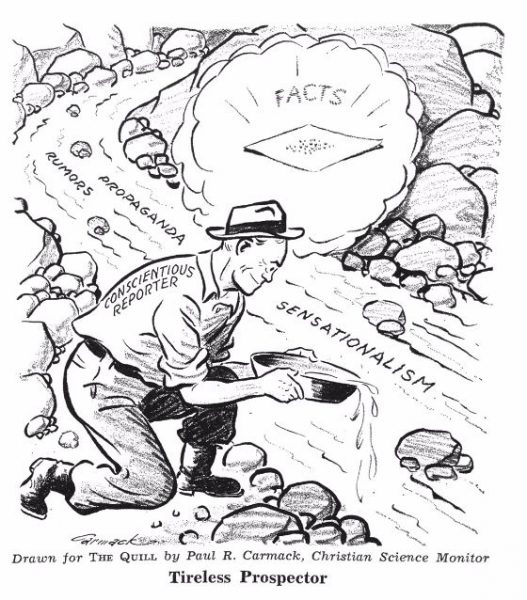THE LAST PEOPLE IN THE WORLD QUALIFIED TO SPEAK ABOUT “FIXING” JOURNALISM: First, note that in the UK they refer to on-air talent as “presenters,” not “journalists.” Good for them. In the US, we have had bimbos and mimbos like Diane Sawyer (ABC) and Stone Phillips (NBC) not only crow about being “journalists” but lecture others about how to do it. Never mind that (and I can’t disclose it for professional reasons) many of these “TV journalists” when sued for libel have signed affidavits and in deposition admitted that “they don’t research or write” and they essentially “just read what’s put in front of me.”
Even Rachel Maddow has pleaded in court and under oath that she was not presenting “facts” but instead “opinion.” Said the 9th Cir. in affirming dismissal of a libel case brought by One America News:
“[T]he MSNBC host’s statement that the far-right network was “paid Russian propaganda” was “an obvious exaggeration,” rather than an asserted fact.”
Oh, “an exaggeration. ” Never mind then. And these are the hypocrites who complain about Tucker Carlson’s passionate Op/Ed work as “disinformation? (Never mind that Carlson doesn’t make “facts” up out of thin air, more often than not has a provably solid basis for his “opinion.”)
So lets have look across the pond to see what our British cousins are saying to “fix” Journalism. Well, The Press Gazette, a pretty good publication covering all matters media in the UK noted that:
“BBC News presenter Ros Atkins has said that change in the news industry is a “necessity” if it wants to survive because “news is not a given in people’s lives” anymore.”
Atkins’ list of things to fix sound like the kind of self-serving well-paid-for psychobabble that passes for analysis of journalism in today’s graduate schools. To be fair, some of Atkin’s “suggestions” are in fact what I teach as primary elements in learning and doing journalism, such as identifying problems in the public interest and providing evidence clearly. If you need a “presenter” to tell you that mass media needs to do a better job at those things, I’d suggest that the education and training of young journalists is severely messed up.
But what I find most objectionable is the reliance on buzzwords that inculcate a culture of self-promotion rather than public service:
“The fourth thing on my list is making sure your work has a digital and social dimension. This might seem obvious, but it’s worth reiterating. If we’re spending money on journalism that has no digital dimension, we should ask hard questions about whether that is money well spent. And then if we’re making digital content, then we have a plan for how this will be shared by people,” he went on.”
His final comment is the dreariest example of gibberish so acceptable in journalism schools:
“The next thing I will say… is how are you going to tell a story… we can see the digital revolution as a distribution revolution, a different way of getting things to people but actually it’s a storytelling revolution,” Atkins said. “We’re living in an age of extreme creativity and in news, we need to match that. We should look far and wide for storytelling inspiration.”
I don’t even know what that means. And coming from the state-sponsored scandal factory that is the BBC, I find it more than a little, um, unself-aware that any of these clowns have the gumption to lecture anyone else.

I’m an old, I guess.
